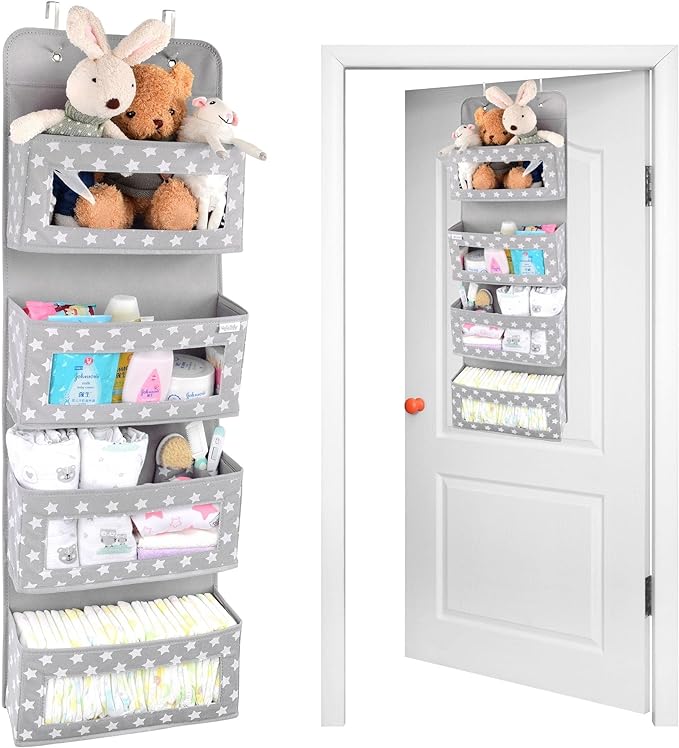
When to Set a Routine for Your Baby
When you have a baby, you will hear lots of talk about setting a routine. This might not sound like the worst idea. Life with a newborn can feel chaotic. Babies are little, but they have a huge impact. A lot of new parents may feel eager to calm the chaos.
Many grown-up humans love predictability and preset plans. Babies, however, come to us unprogrammed, with no concept of time or scheduling. Their constantly changing and unpredictable needs can be exhausting. Babies are little, but they have a huge impact. A lot of new parents may feel eager to calm the chaos
So, when can you set a routine for a baby?
Why wait to set a routine?
The most important thing, especially the first few months, is to ensure that your and your baby’s needs are met.
A fundamental need for your baby is food. There is a lot of debate regarding whether to feed a baby at set times or to feed on demand.
A 2012 study shows feeding a baby on a schedule can be better for the mother’s overall well-being. The same study shows that babies who feed on demand are more successful academically later in life. (Lacovou and Sevilla, 2012) As with many areas of parenting, there are valid arguments on both sides.
However, if you want to breastfeed up until weaning, feeding on demand is important.
Many mothers stop breastfeeding early, due to problems with their milk supply. A baby’s natural feeding patterns can help to stimulate milk production. As your little one grows, they need more milk per feed. Babies can encourage their mother’s body to meet the increasing demands by cluster feeding. Cluster feeding is exhausting, but it works. (USDA)
As your little one grows and develops during these first few months, sleep patterns will fluctuate, too. Although this is normal, it can be exhausting.
Keeping up with the needs of a newborn is hard. Once the baby is settled, it is important to take care of yourself. The priority during this stage is keeping everyone well. The pressure to keep to a schedule too early can add unnecessary stress.
When should you set a routine for baby?
There are many opinions about the right time to set a routine for your baby. It is important to remember that while opinions differ, so do babies. What works for one family may not work for you.
Recommendations can vary from six weeks to six months. By as early as two months, you may find that a routine is beginning to emerge. (Dougherty, 2022) Just remember to be kind to yourself. It will take time for you and your baby to fall into a working rhythm.
If a routine hasn’t emerged after a few months, you can begin proactively working towards one. This could take time. You may establish a routine which works beautifully, only to find a few months on it no longer works. Don’t despair. Babies are unpredictable. Adapt where needed, and try again.
For some people, living out of routine is not physically possible. Modern life puts a lot of demands, on new parents. If you need to set a routine earlier on, there are some great online resources available from sites like Baby Center.
The benefits of a routine
Establishing a routine can have advantages for both you and your baby. For you as a grown-up, having your baby following a routine means you can too. You will also know when your baby is most likely to sleep so you can make plans that are more likely to work. Routines can also reduce your stress and improve your sleep. (Brennan, 2021)
As your baby grows they will become increasingly aware of the new and unfamiliar world around them. Having some predictability in their day can be comforting, and help them to feel safe. (“The Benefits of Routines for Babies and Toddlers”)

How to set a schedule for your baby
- Work with what is there. If a routine is already beginning to emerge naturally, start there. It is better not to change too much, too soon. If you need to move feeding or sleeping times, move them a little at a time.
- Make bedtimes relaxing. Choose a few activities to build a bedtime routine with your little one. You could include things like baths, nighttime feeds, or relaxing music. Although they may not yet follow along, reading aloud to your newborn can be a bonding experience. Find what works for you.
- Consider a dream feed. Some experts suggest waking your baby for a dream feed at around ten or eleven PM before you go to sleep. Dream feeds can prevent your baby from waking up hungry and may improve the night’s sleep for the whole family. (Wisner, 2020)
- Monitor naps. It is worth being aware of how much sleep your baby needs. If a baby sleeps too long, they may not sleep as well at night. Long naps can seem like a blessing but try to keep them under two hours. Naps earlier in the day are better, as they are less likely to impact bedtime.
What a healthy schedule looks like
A healthy schedule should be workable. A workable schedule will look different for every family. Focus on what benefits both you and your baby.
The most important thing is remembering to be flexible. When growth and development leaps happen sleep patterns can be drastically affected. There will also be external factors, which will throw you off routine some days. If your schedule is already flexible, these changes will have less impact on you and your newborn.
A final note
When you try to set a routine, for you and baby, it will be a learning curve for you both. Be patient. If things don’t fall into place at first, adapt if needed and keep trying.
It is always helpful to build a reliable support system. Don’t be ashamed to accept help.
When it goes to plan, I am happy for you. When it doesn’t, breathe.
The messy moments will pass. The sweet memories will last.
I wish you all the peace,
Hannah
References
Brennan, Dan. “Psychological Benefits of Routines.” WebMD, 25 Oct. 2021, www.webmd.com/mental-health/psychological-benefits-of-routine. Accessed 19 Nov. 2024.
Bell, Sophie. “Seven Steps to Creating a Successful Baby Routine.” BabyCentre UK, Sept. 2021, www.babycentre.co.uk/a1051918/seven-steps-to-creating-a-successful-baby-routine. Accessed 13 Nov. 2024.
Dougherty, Elizabeth. “Baby Schedules: When to Start a Daily Routine with Your Baby.” BabyCenter, 28 July 2022, www.babycenter.com/baby/schedules/the-basics-of-baby-schedules-why-when-and-how-to-start-a-rou_3658352. Accessed 19 Nov. 2024.
https://www.facebook.com/nhswebsite. “Your Baby’s Sleep Patterns – Start for Life.” Nhs.uk, 13 June 2023, www.nhs.uk/start-for-life/baby/baby-basics/newborn-and-baby-sleeping-advice-for-parents/your-babys-sleep-patterns/. Accessed 13 Nov. 2024.
https://www.facebook.com/parents. “Cluster Feeding and Newborns: A Guide for Parents.” Parents, 2020, www.parents.com/baby/breastfeeding/problems/cluster-feeding-your-newborn-a-guide-for-parents/. Accessed 13 Nov. 2024.
Iacovou, Maria, and Almudena Sevilla. “Infant Feeding: The Effects of Scheduled vs. On-Demand Feeding on Mothers’ Wellbeing and Children’s Cognitive Development.” European Journal of Public Health, vol. 23, no. 1, 14 Mar. 2012, pp. 13–19, www.ncbi.nlm.nih.gov/pmc/articles/PMC3553587/, https://doi.org/10.1093/eurpub/cks012. Accessed 25 Apr. 2019.
Louise, Hannah. “10 Ways to Practice Self-Care as a Parent – Calm to the Storm.” Calm to the Storm, 23 Feb. 2024, www.calmtothestorm.com/10-ways-to-practice-self-care-as-a-parent/. Accessed 13 Nov. 2024.
NHS. “Helping Your Baby to Sleep.” Nhs.uk, 7 Dec. 2020, www.nhs.uk/conditions/baby/caring-for-a-newborn/helping-your-baby-to-sleep/. Accessed 13 Nov. 2024.
“The Benefits of Routines for Babies and Toddlers.” Babysparks, 1 Autumn 2020, babysparks.com/2020/01/23/the-benefits-of-routines-for-babies-and-toddlers/. Accessed 19 Nov. 2024.
USDA. “Low Milk Supply | WIC Breastfeeding.” Wicbreastfeeding.fns.usda.gov, wicbreastfeeding.fns.usda.gov/low-milk-supply. Accessed 13 Nov. 2024.
Wisner, Wendy. “Sweet Dreams Are Made of Milk: All about Dream Feeding.” Healthline, Healthline Media, 16 Jan. 2020, www.healthline.com/health/baby/dream-feed. Accessed 19 Nov. 2024.









